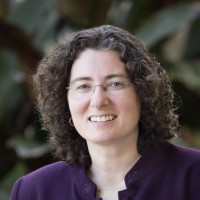Prisoners of an Image Secularization as an Epidemic

Paolo Costa is a researcher at the Center for Religious Sciences of Fondazione Bruno Kessler in Trento, Italy.
The post was first published on the Bruno Kessler Foundation’s Center for Religious Studies’ website.
Photographing the Void
What will stay with us after the COVID-19 pandemic is over is not only the bewilderment at a life change that no sane person could have foreseen only a few months ago or the collective anxiety for an indeterminate and insidious threat impending over mankind. Besides this, some images have disturbed the consciences of those who, to evoke Max Weber, are still religiously musical despite the inexorable process of the disenchantment of the world.
Some of these images have already gone down in history.
The most evocative ones are the photographs of Pope Francis shot during the extraordinary Urbi et Orbi blessing of March 27. Overlooking a deserted and rain-lashed Saint Peter’s Square, he gave voice to the feeling of disorientation afflicting Christians and non-Christians alike since the beginning of the pandemic with these powerful words:


